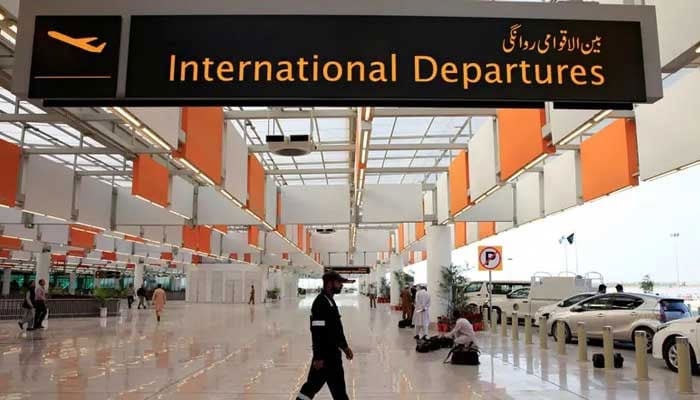Health
Self-radicalisation
字号+ Author:Smart News Source:US 2025-01-14 02:40:27 I want to comment(0)
RADICALISATION is a human tendency that is as old as humanity itself. However, in the modern age, instant connectivity has increased the possibility of self-radicalisation. Technology, particularly the internet and social media, has enabled individuals to connect globally, share their ideologies, recruit and train others, make appeals for funding, and propagate, communicate, and coordinate their activities. The anonymity of the internet aids these activities and allows individuals to self-radicalise without active and face-to-face support. The radicalisation process can vary, but generally involves four stages: pre-radicalisation (the lifestyle of an individual prior to radicalisation), self-identification, indoctrination, and acceptance of a role as a warrior. During radicalisation, an individual adopts extreme political, social, or religious thoughts, rejects the status quo, or undermines contemporary values. Extremist websites, direct interactions with violent extremists, community support for violence, and anger against certain political decisions regarding foreign and internal policies may provide ‘justification’ for radicalisation. Historical factors, such as the involvement of family or friends in violence, an individual’s previous criminal record and previous exposure to violence, history of training imparted by militant groups, and foreign travel, particularly to a conflict area, are important factors that may lead to radicalisation. Radicalisation can also be inspired by experiences while travelling abroad, research, or human rights violations, particularly in areas occupied by foreign forces. Home-grown terrorist cells are generally semi-autonomous or consist of isolated individuals. These individuals may be ‘self-starters’ and may not have a criminal record. There is an impression that home-grown recruits are usually second-generation immigrants facing an identity crisis. Narratives of unresolved conflicts in history may provide them motive for action and lead to self-radicalisation. Personal experiences of victimisation, political grievances, and feelings of exclusion are also instrumental in self-radicalisation. Radicalisation generally involves four stages. During the self-radicalisation process, the person may experience a crisis caused by personal or social disruption. Relationships, rituals, and roles may change during the radicalisation period. In this time, individuals may be on a slippery slope where they engage with a radical group or individuals propagating a radical ideology. External factors like polarisation within society and social isolation faced by an individual may contribute to self-radicalisation, as isolation reinforces radicalism. Poverty is also often seen as one of the prime reasons for radicalisation, but it seems to be a myth as many militants come from middle-class backgrounds and have a university education. Self-radicalisation can be tackled through partnerships between law-enforcement agencies and citizens. To address the menace of radicalisation, LEAs have implemented various programmes, including ‘neighbourhood policing’, which seeks to establish trust within a community by establishing an information exchange mechanism. The Turkish police have developed a ‘community partnership’ programme to gather information from community members about suspicious activities. Similarly, in 2010, the US Department of Homeland Security announced the ‘See Something, Say Something’ programme. Disengagement and de-radicalisation are well-thought-out psychological and social processes. Disengagement involves behavioural changes in the affected person, including leaving a radicalised group or limiting one’s role within the group. Deradica- lisation involves cognitive change, such as relinquishing an ideology. Deradicalisation programmes can be evaluated and monitored to understand the economic, psychological, and social motivations for joining an extremist group. What financial incentives did the radicalised person or their family derive from engagement in violence? How can family members be engaged in the deradicalisation process? Governments and LEAs must adopt measures to address terrorists’ use of the internet. This includes removing radical content from the web, filtering and restricting users’ access, controlling the exchange of information, and investing in countering extremism in cyberspace. Blocking certain websites may seem like the easiest solution, but simply blocking them may only be a technical fix. An alternative, more effective option is to counter extremist narratives. There is a dire need to shift the focus from the ‘war on terrorism’ to the battle of ideas. Killing terrorists may be easy, but defeating ideology can prove rather difficult. . X:
1.This site adheres to industry standards, and any reposted articles will clearly indicate the author and source;
 Related Articles
Related Articles-
PTI adamant on holding Nov 24 protest despite IHC order; section 144 enforced in Punjab
2025-01-14 02:03
-
Nasa spacecraft set to make closest-ever approach to Sun today
2025-01-14 01:09
-
WhatsApp releasing playback speed for videos
2025-01-14 01:01
-
OpenAI turns up heat on Google with global launch of ChatGPT search
2025-01-13 23:59
 User Reviews
User Reviews Recommended Reads
Recommended Reads Hot Information
Hot Information- Blake Lively in another feud with Hugh Jackman's ex after Baldoni case
- WhatsApp to simplify channels, status updates with new shortcuts
- WhatsApp to introduce new Meta AI shortcut for chats
- WhatsApp enhances video calls with four new features
- Arrest warrants for PTI activists
- WhatsApp releasing playback speed for videos
- Pakistan's internet speed set to 'improve' with new undersea cable
- ‘Negative time’ observed in breakthrough quantum experiments
- Zayn Malik marks 32nd birthday with jaw-dropping cake: See Photo
 Abont US
Abont US
Follow our WhatasApp account to stay updated with the latest exciting content












